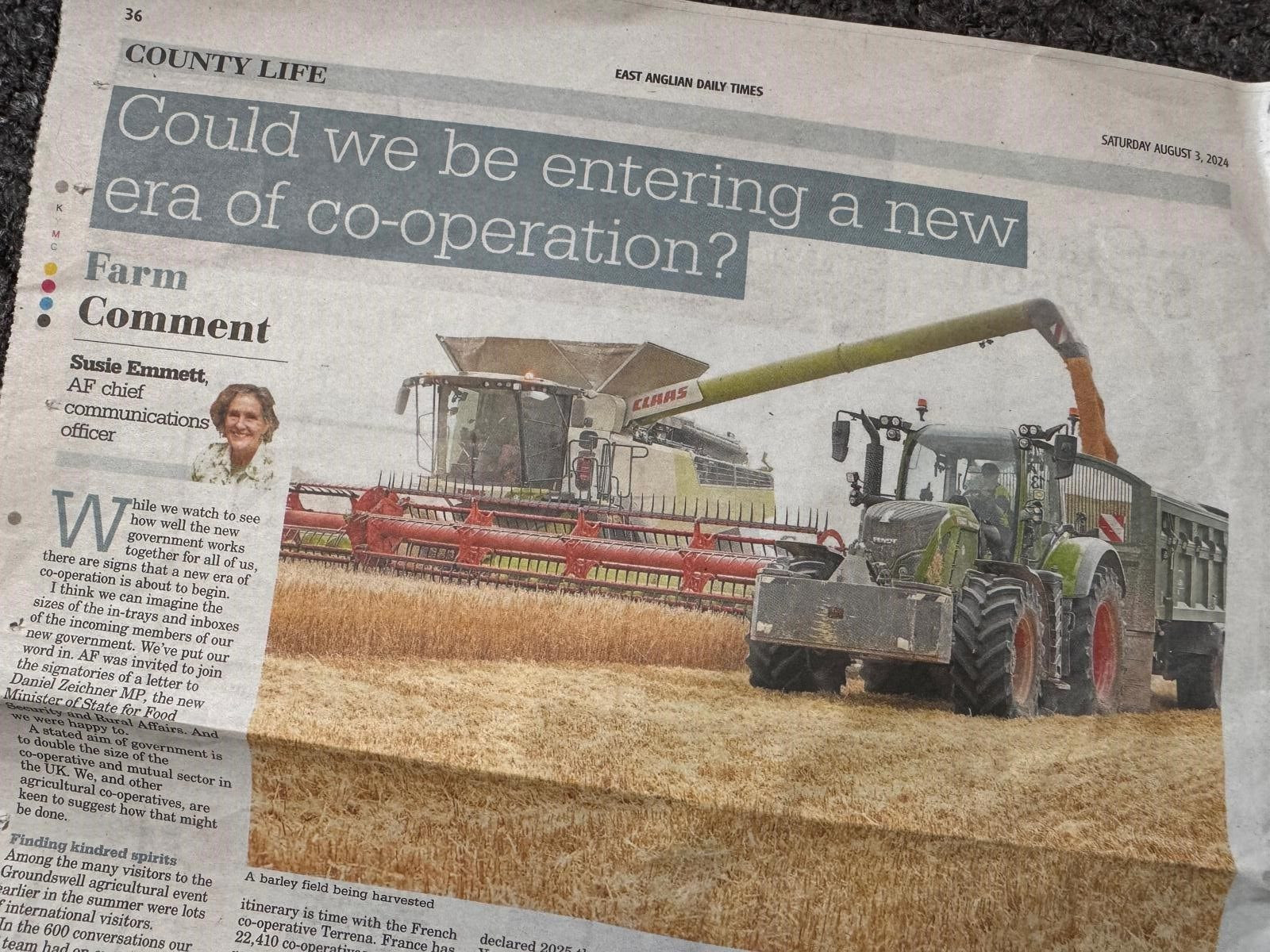News
Entering a new era of co-operation?
27 August 2024
While we watch to see how well the new government works together for all of us, Susie Emmett, AF Chief Communications Officer, shares that farmer-owned co-operative AF Group is seeing signs that a new era of co-operation is about to begin.
I think we can imagine the sizes of the in-trays and inboxes of the incoming members of our new government. We’ve put our word in. AF was invited to join the signatories of a letter to Daniel Zeichner MP, the new Minister of State for Food Security and Rural Affairs. And we were happy to.
A stated aim of government is to double the size of the co-operative and mutual sector in the UK. We, and other agricultural co-operatives, are keen to suggest how that might be done.
Amongst the many visitors to the Groundswell agricultural event earlier in the summer were lots of international visitors. In the 600 conversations our AF team had on our stand there, we met co-operative members from countries including Estonia, France, the United States and New Zealand.
Of course, they had found kindred spirits in us. But they were as interested as we were to discuss how the co-operative model works in different nations and what the benefits (and membership costs) are to those who join them. In a couple of months, the FRESH AF cohort of younger agri-professionals are taking a short trip to France and on their itinerary is time with the French co-operative Terrena. France has 22,410 co-operatives, representing 40% of food industry turnover and including brands such as E. Leclerc which you’ll likely recognise if you’ve ever taken a trip across the Channel.
We seem an island in a world of enthusiasm for farming-based co-ops. We have fewer per capita in the UK than just about anywhere else in the world. Why’s that? Is it that our island state leads to an island mentality? Or is isolationism starting to weaken?
The United Nations has declared 2025 the International Year of Co-operatives. It is recognising the essential role co-operatives play, particularly in rural economies, all over the world. The numbers are incredible. There are 3 million co-ops around the world, with 1.2 billion members. Globally, co-ops employ more than 280 million people – that means 10% of the world’s employed population work for a co-op.
In the UK we have over 7,000 co-operatives. National names include Arla dairy co-operative, whose products you may have seen on supermarket shelves, Openfield whose orange lorries you may have seen on the road taking wheat to Warburtons, and The Co-operative Group, familiar for their grocery stores. More locally you may know Suffolk-based Fram Farmers.
The business model of co-operation works incredibly powerfully to bring business success. Especially where the co-op covers more links in the supply chain, buying inputs better together and selling better together too.
Co-operatives may not be as numerous here as on the continent of Europe. But our rural landscape is peppered with stories and new examples of when co-operation is key, and even saves the day.
Neighbours help each other. It’s a proud farming tradition. Especially at harvest - when push comes to shove and a call goes out - machinery or manpower arrives to help get the job done.
The letter calling for government co-operation on co-operatives is signed and sent. The invitation is extended for our new Minister to talk with farming co-operatives like ours to learn how we work, and why it’s in the interests of those farming and rural businesses not already in one to investigate the positive differences co-operatives make.
Emmett S. 2024. Could we be entering a new era of co-operation? Page 36. East Anglian Daily Times. 3rd August.